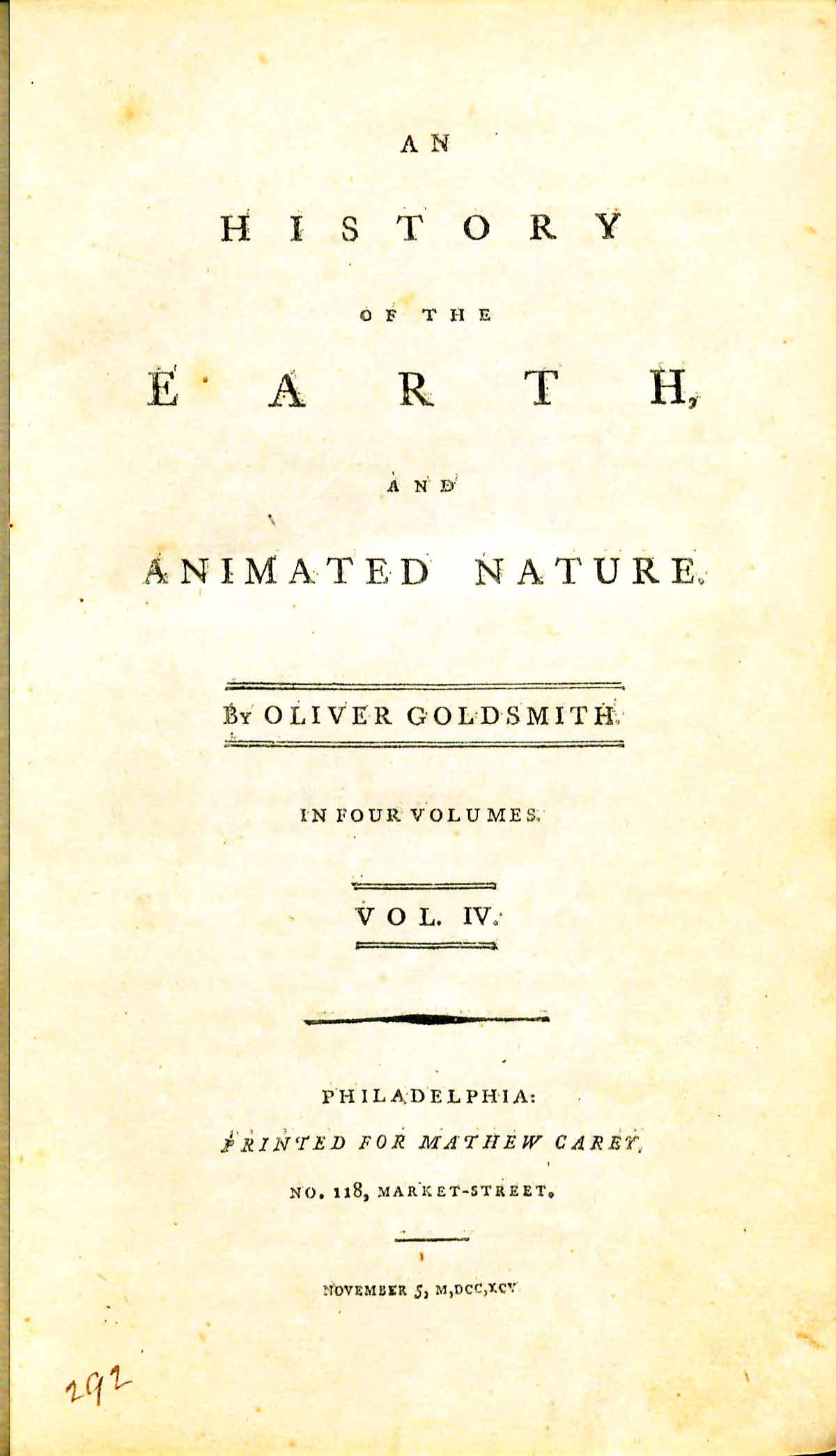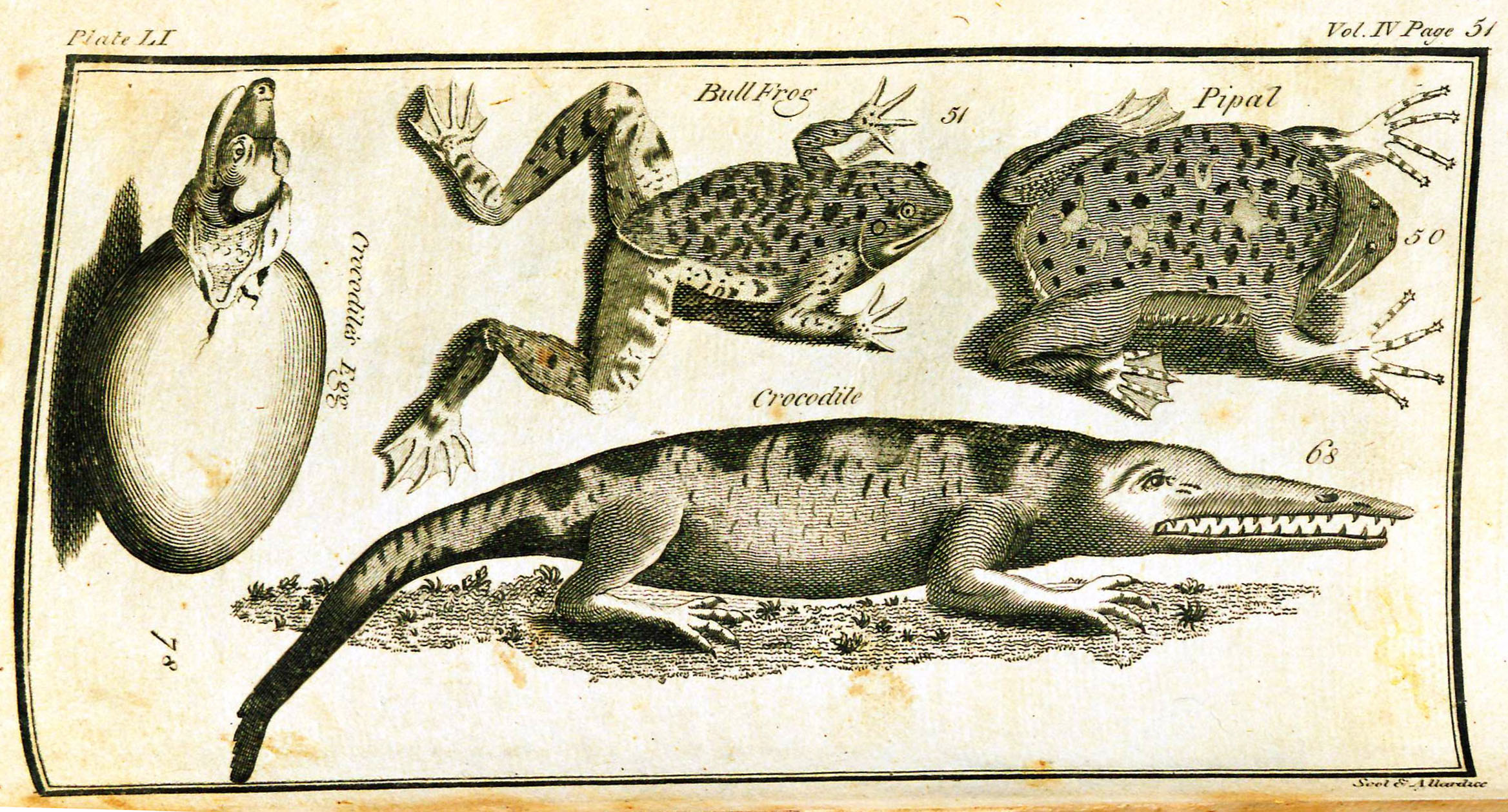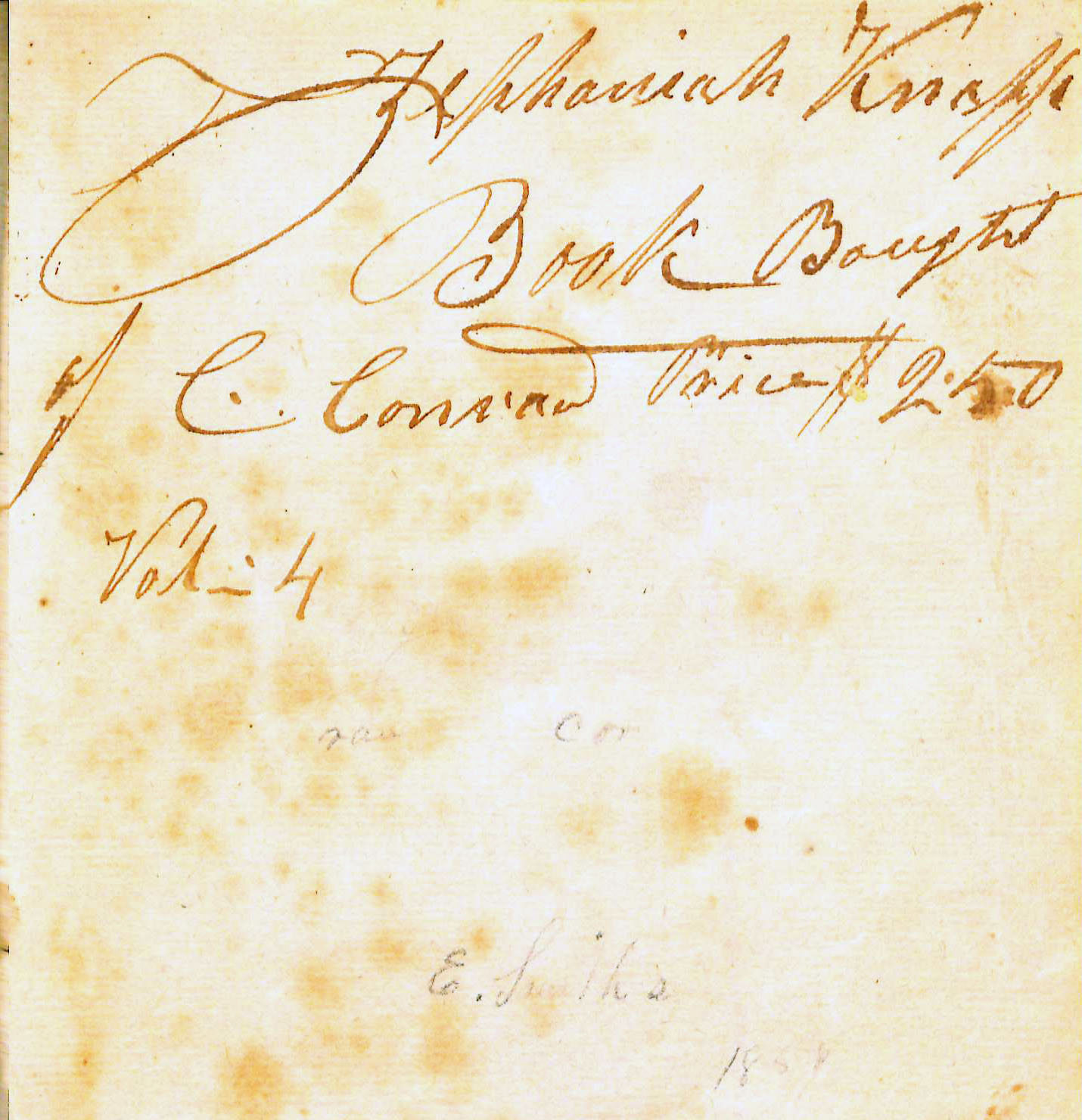An History of the Earth, and Animated Nature
by Oliver Goldsmith
| An History of the Earth, and Animated Nature | |
|
Title page from An History of the Earth, and Animated Nature, volume four, George Wythe Collection, Wolf Law Library, College of William & Mary. | |
| Author | Oliver Goldsmith |
| Published | Philadelphia: Printed for Mathew Carey |
| Date | 1795 |
| Language | English |
| Volumes | 4 volume set |
| Desc. | 8vo (22 cm.) |
| Location | Shelf N-4 |
Oliver Goldsmith (1728? – 1774) was an early 17th century Irish playwright and novelist whose exact birthplace and date are still disputed.[1] After an unsuccessful medical career, Goldsmith turned his hand to writing. His most famous works include the 1773 novel The Vicar of Wakefield, and the play, She Stoops to Conquer, written in 1766 and first performed in 1773. Despite his literary fame and success, Goldsmith struggled financially throughout until his death.[2]
Towards the end of his life, Goldsmith became fascinated with the environment and sought to create a definitive text chronicling biological life on the planet.[3] An History of the Earth, and Animated Nature was known not only for the breadth of information about wildlife of all kinds, but also for its early distinction between the types of sciences. Early in the text Goldsmith carefully delineates the realms of general and material physics, as well as the role of nature and natural law, while speaking dismissively of a Supreme Being.[4] In a main thematic piece that stretches through all eight volumes of the work, Goldsmith, a notable naturalist, exposes serious flaws within the naturalist position; he reveals the loose boundary between the most sensitive of plants and the most stationary and unresponsive of animals, and criticizes the popular notion of a well defined hierarchy in favor of a more loose continuum of sentient life.[5]
Evidence for Inclusion in Wythe's Library
Listed in the Jefferson Inventory of Wythe's Library as "Goldsmith’s Animated Nature. 4.v. 8vo." This was one of the titles kept by Thomas Jefferson and later sold to the Library of Congress in 1815. Both the Brown Bibliography[6] and George Wythe's Library[7] on LibraryThing include the first American edition (1795) based on Millicent Sowerby's entry in Catalogue of the Library of Thomas Jefferson.[8] The volumes no longer exist to verify the edition, nevertheless, the Wolf Law Library's George Wythe Collection includes the edition recommended by Sowerby.
Description of the Wolf Law Library's copy
Bound in quarter-calf and marbled boards. Volumes one, two and four inscribed "Zephaniah Knopfe, Book Bought of C. Conrad Price $2.50" on a front blank. Volume four includes the additional inscription "E. Smith's, 1854." Purchased from B&L Rootenberg Rare Books.
Images of the library's copy of this book are available on Flickr. View the record for this book in William & Mary's online catalog.
See also
References
- ↑ John A. Dussinger, "Goldsmith, Oliver (1728?–1774)," Oxford Dictionary of National Biography (Oxford University Press, 2004- ), accessed 6 Oct 2013.
- ↑ Ibid.
- ↑ Dickinson College website, s.v. "Oliver Goldsmith (1728-74)," accessed October 5, 2013.
- ↑ Oliver Goldsmith, A History of Earth and Animated Nature (London: Printed for J. Nourse 1774).
- ↑ Dickinson College website, s.v. "Oliver Goldsmith (1728-74)."
- ↑ Bennie Brown, "The Library of George Wythe of Williamsburg and Richmond," (unpublished manuscript, May, 2012) Microsoft Word file. Earlier edition available at: https://digitalarchive.wm.edu/handle/10288/13433
- ↑ LibraryThing, s.v. "Member: George Wythe" accessed on November 11, 2013.
- ↑ E. Millicent Sowerby, Catalogue of the Library of Thomas Jefferson (Washington, D.C.: The Library of Congress, 1952-1959), 1:467 [no.1026].
External Links
- Read volume II from the Hathi Trust.
- Read volume III from the Hathi Trust.
- Read volume IV from the Hathi Trust.


